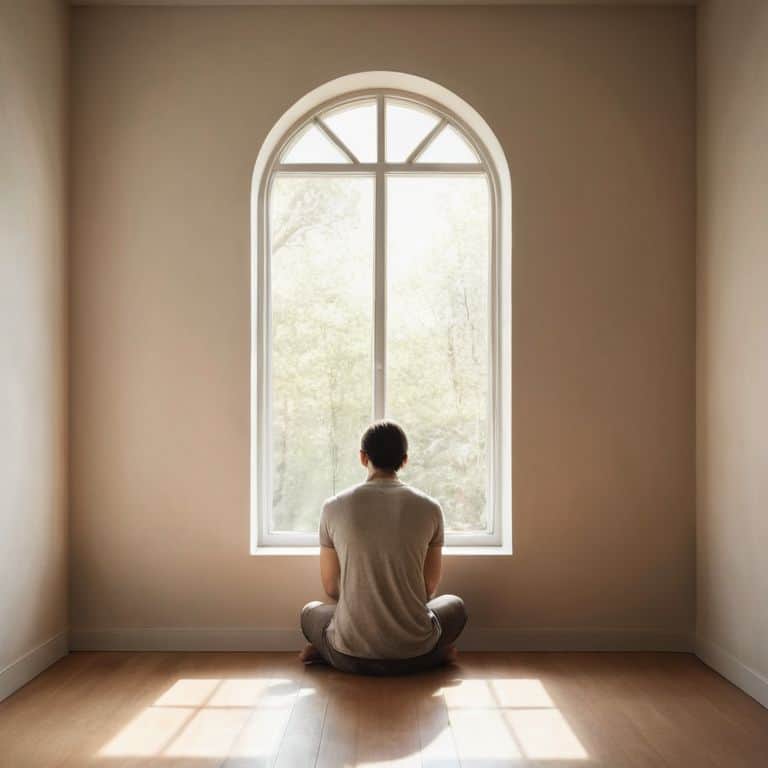I still remember the feeling of being trapped in a cycle of people-pleasing, always saying yes to requests that drained my energy and left me feeling resentful. It was as if I had forgotten how to say no without feeling guilty, and it took a toll on my mental and physical health. The truth is, learning how to say no without feeling guilty is a skill that takes time and practice to develop, but it’s essential for maintaining healthy boundaries and living a life that truly reflects our values. I’ve been there, and I’ve learned that it’s okay to say no, even when it’s hard.
As someone who’s struggled with this issue, I want to share my honest, no-hype advice on how to say no without feeling guilty. In this article, I’ll walk you through the practical steps I’ve taken to develop this skill, from recognizing the signs of people-pleasing to crafting a firm but polite response to unwanted requests. My goal is to help you break free from the guilt and anxiety that often comes with saying no, and to empower you to make choices that align with your priorities and values. By the end of this article, you’ll have the tools and confidence to say no without feeling guilty, and to start living a life that’s true to who you are.
Table of Contents
Guide Overview: What You'll Need

Total Time: 1 hour to 3 hours
Estimated Cost: $0 – $0
Difficulty Level: Intermediate
Tools Required
- Self-reflection Journal (for writing down personal boundaries)
- Practice Scripts (for rehearsing assertive responses)
Supplies & Materials
- Emotional Support System (friends, family, or therapist)
- Boundary Setting Books (for additional guidance)
Step-by-Step Instructions
- 1. First, acknowledge the guilt that comes with saying no – it’s a natural response, especially if you’re a people-pleaser like I used to be. Recognize that this feeling is not a reflection of your worth, but rather a conditioned response to the fear of disappointing others. Take a deep breath, and remind yourself that setting boundaries is essential to maintaining your own emotional and mental well-being.
- 2. Next, identify your non-negotiables – the things that are absolutely essential to your happiness and success. For me, it’s about having time to work on my photography projects and taking care of my old motorcycles. When a request comes in, ask yourself if it aligns with these core values. If it doesn’t, it’s easier to say no without feeling guilty, because you’re prioritizing your own needs.
- 3. Now, practice using the power of no in low-stakes situations. Start small, like saying no to a coffee invitation or declining a non-essential commitment. This will help you build confidence in your ability to say no without overexplaining or justifying your decision. Remember, a simple “no, thank you” can be enough.
- 4. Learn to recognize and challenge the negative self-talk that can creep in when you’re saying no. Notice when you’re telling yourself that you’re selfish or unkind for saying no, and reframe those thoughts in a more positive light. For example, instead of thinking “I’m so selfish for saying no to this request,” tell yourself “I’m taking care of myself by saying no to this request.
- 5. Develop a script for saying no that feels authentic and comfortable for you. This might be as simple as saying, “I appreciate you thinking of me, but I don’t have the bandwidth for that right now.” or “I’m trying to focus on my own priorities, so I’ll have to say no to that.” Having a go-to phrase can make it easier to say no in the moment.
- 6. Consider the long-term benefits of saying no to a particular request. While it might be uncomfortable in the short-term, saying no can create space for more meaningful and aligned opportunities in the future. For example, saying no to a non-essential project at work might give you the time and energy to pursue a more fulfilling opportunity.
- 7. Finally, practice self-compassion when you do say no, and someone reacts negatively. Remember that their response is not a reflection of your worth, but rather a reflection of their own needs and expectations. Take a deep breath, and remind yourself that you’ve made a decision that aligns with your values.
Saying No Without Guilt

As I reflect on my own journey of learning to say no, I realize that setting healthy limits is a muscle that needs to be exercised regularly. It’s not something you can do once and forget about; it requires constant practice and reinforcement. I’ve found that it’s helpful to start small, saying no to minor requests that don’t align with my priorities, and gradually work my way up to bigger ones. This approach has allowed me to build confidence in my ability to assert myself without feeling guilty.
One of the most significant challenges I’ve faced is overcoming people-pleasing habits. For a long time, I thought that saying yes to everyone was the key to being liked and accepted. But I’ve come to realize that this approach only leads to burnout and resentment. By prioritizing my own needs and prioritizing personal time management, I’ve been able to maintain healthier relationships and reduce feelings of guilt and anxiety. It’s not always easy, but it’s worth it in the end.
Through this process, I’ve discovered that building self_respect through boundaries is a powerful tool for personal growth. When I’m able to assert myself clearly and respectfully, I feel a sense of pride and self-worth that I wouldn’t trade for anything. It’s a feeling that’s hard to describe, but it’s essentially a sense of being grounded and secure in my own skin. By embracing this mindset, I’ve been able to develop effective communication techniques that serve me well in all areas of my life.
Fractured Boundaries Setting Healthy Limits
For me, setting healthy limits is about recognizing the fractures in my own boundaries. It’s acknowledging the places where I’ve compromised my own needs to appease others. I’ve learned that saying no is not just about declining a request, but about reclaiming my own sense of self. It’s about being honest with myself about what I can and cannot handle. When I set healthy limits, I’m not just protecting my time and energy, I’m also preserving my integrity.
This process of setting boundaries has been a journey of self-discovery for me. I’ve had to confront my own fears and insecurities, and learn to communicate my needs in a clear and respectful way. It’s not always easy, but it’s been liberating to recognize that my boundaries are not weaknesses, but strengths. By setting healthy limits, I’m able to show up more fully in my life and relationships, and to live a more authentic, wholehearted existence.
Guilt Free Assertiveness Through Self Respect
For me, asserting myself without guilt starts with a fundamental respect for my own needs and desires. It’s about recognizing that my worth isn’t defined by my ability to please others, but by my ability to stay true to myself. When I say no, I’m not just setting a boundary – I’m affirming my own value and priorities. It’s a subtle but powerful shift in mindset, one that allows me to communicate my limits with clarity and confidence. By honoring my own needs, I’m able to show up more fully for the people and commitments that truly matter to me.
Beyond the Guilt Trip: 5 Unapologetic Tips for Saying No
- Saying no is a muscle that needs to be exercised, and like any muscle, it grows stronger with practice – start small, with low-stakes situations, to build your confidence
- Remember that ‘no’ is a complete sentence – you don’t owe anyone an explanation for your decisions, so don’t feel compelled to provide one unless you genuinely want to
- Your worth isn’t defined by your willingness to please others – repeat this mantra to yourself until it becomes a part of your DNA, and watch how your relationships transform
- Guilt is often a symptom of misplaced responsibility – recognize when you’re shouldering the burden of others’ expectations, and gently set it down – it’s not yours to carry
- Each ‘no’ you say is an opportunity to say ‘yes’ to yourself – celebrate these moments of self-affirmation, and use them as reminders that your own needs and desires are valid and worthy of attention
Embracing the Power of No: 3 Key Takeaways
Saying no is not a sign of weakness, but a sign of self-respect – it’s about setting healthy boundaries and prioritizing your own needs in a world that often demands too much
True assertiveness is not about being aggressive or confrontational, but about being clear, direct, and respectful – it’s a superpower that can be developed through practice and self-awareness
Learning to say no without guilt is a journey, not a destination – it requires embracing your imperfections, acknowledging your limitations, and trusting that your worth and value come from who you are, not from what you do
Embracing the Power of No

Saying no without guilt is not about being selfish, it’s about being a guardian of your own boundaries, a sentinel of your soul – it’s the hardest and most necessary lesson I’ve learned on my own journey to self-respect.
Rowan Croft
Embracing the Power of No
As we’ve navigated the journey of learning to say no without feeling guilty, we’ve explored the importance of fractured boundaries and how they can be both a source of pain and a catalyst for growth. We’ve discussed the value of guilt-free assertiveness and how it can be cultivated through self-respect and a deep understanding of our own needs and limitations. By setting healthy limits and prioritizing our own well-being, we can begin to break free from the weight of obligation and expectation that often accompanies our inability to say no.
So as you move forward, remember that saying no is not a sign of weakness, but rather a badge of honor that signifies your commitment to living a life that is authentic and true to who you are. By embracing the power of no, you’ll be able to reclaim your time, your energy, and your sense of purpose, and live a life that is more intentional, more meaningful, and more fully your own.
Frequently Asked Questions
How do I handle situations where saying no to someone's request affects not just me, but also others who are counting on me?
When saying no impacts others, I weigh the ripple effects, considering who’s counting on me and why. It’s about being honest with them, too, and explaining my reasoning – not to seek their approval, but to show respect for their dependence on me. Transparency can be a powerful diffuser of guilt.
What if the person asking for something is a close friend or family member – how can I say no without jeopardizing our relationship?
Saying no to someone close can be a razor’s edge – you want to preserve the relationship, but not at the cost of your own integrity. I’ve found that honesty, tempered with empathy, is key. Explain your reasons, and reassure them it’s not a rejection of them, but a necessary step to maintain your own balance.
Are there any specific phrases or scripts I can use to say no without feeling guilty, especially in professional or formal settings?
When I’m faced with a request that doesn’t align with my priorities, I use phrases like “I appreciate the ask, but I need to focus on my current commitments” or “I’m not the best fit for this project, but thank you for thinking of me.” These scripts help me set boundaries without apologizing for my own worth.
